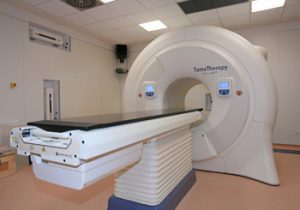Cancer machine.
BY DUNCAN M.
A CLINICAL AND COMMUNITY NUTRITIONIST.
If you’ve made the decision to undergo a surgery in order to reduce cancer risk, or due to a cancer diagnosis, it’s important to think about preparing your body for surgery and recovery.
In the weeks leading up to surgery, if your doctor approves, increase your frequency of exercise – specifically cardio-based workouts.(For your heart). Increasing your cardiovascular fitness and DECREASING alcohol intake prior to surgery have both been shown to help the body recover more quickly from anaesthesia.
While what you eat might be the last thing on your mind during those first post-operative days(after operation) in the hospital, your body is rapidly trying to heal itself. Without the proper building blocks, the healing process could be slow or have poor outcomes. The old adage, “you are what you eat,” is actually applied here – your body uses the food that you eat to repair the damaged tissue after surgery.
The first important nutrient to focus on is PROTEIN. As muscle tissue is damaged or re positioned during surgery, your body starts to repair the area right away by making new muscle fibers. In order to make these new muscle fibers, the body requires protein, which ideally will come from what you eat. If you don’t get enough protein through food, however, other non-essential muscles will be broken down and used to repair the damaged tissue. By getting the protein through nutrition, that muscle breakdown can be avoided.
For surgery recovery, the recommendation for protein intake is 1.5-2 grams of protein per day per kilogram of body weight. For example, a 65 kg woman requires 78-130 g protein per day. This is an increase from the standard recommendation for women, but can still be easily achieved. Try to have a good protein source at each meal. Choose eggs, yoghurt, or cheese at breakfast; at lunch or dinner, try poultry, meat, fish, or beans. Nuts and nut butters also have high protein levels – snack on nuts or peanut butter spread on crackers in between meals.
Eating the following in one day provides 86 grams of protein, easily meeting the needs of a 65 kg woman after surgery:
Source Amount of Protein (approx)
2 eggs 12 g
1 slice cheddar cheese 7 g(available in supermarkets)
1 cup brown rice 5 g
1 medium chicken breast 39 g
1 cup plain, low fat yogurt 13 g
½ cup raw almonds 10 g
If you are a vegetarian,consider asking your doctor about liquid meal replacement shakes to boost protein intake during your recovery.
There are also several vitamins andminerals involved in surgery recovery.Vitamin C is responsible for making connective tissue, and it acts as a powerful antioxidant. The best sources of vitamin C in food are citrus fruits (oranges, grapefruit, kiwi fruit) capsicums, strawberries, and broccoli. One medium-sized orange will provide all you need for the day, so simply ask for an orange or grapefruit with your breakfast tray to get your vitamin C. In addition to Vitamin C,Vitamin A also aids in wound healing; it is found in carrots, sweet potatoes, pumpkin,and dark leafy green vegetables.
After surgery, medications, fatigue, and discomfort can often make eating unappealing. In order to maintain caloric intake,try to eat smaller, more frequent meals throughout the day instead of larger meals. Keep fresh fruits handy if you become hungry in between meals. If approved by your medical team, taking small walks through the day can stimulate appetite.
It’s hard to control what you eat while in a hospital, but as long as you don’t have any dietary restrictions, you should be allowed to bring in outside food,ask your friend or relative to bring in fresh fruits and the occasional smoothie. The most important thing is getting enough calories to give your body the energy to heal properly.
Constipation is a common side effect of anaesthesia and pain medications. In order to prevent it, eat plenty of whole foods like fruits and vegetables, as well as whole grains like brown rice. Remember to drink plenty of fluids.
If you are considering taking supplements, like vitamins or protein shakes, make sure to get approval from your doctor first. You can also request to speak to a dietitian or a nutritionist,either in the hospital or as an outpatient, if you are concerned with your diet.(which you should be)
Well there you have it folks,see you next time.
Compiled by Duncan.M
Clinical and community Nutritionist.
duncanm993@gmail.com







